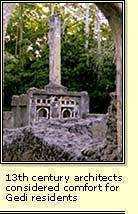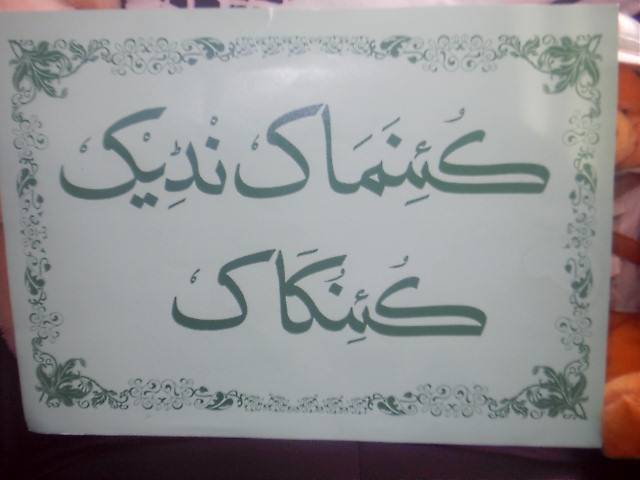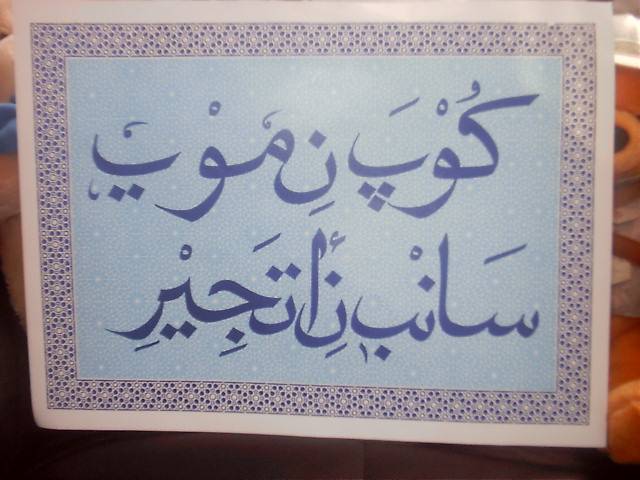
The Waswahili Community Trust UK
(Wadhamini wa jumuiya ya Waswahili)


|
The Waswahili Community Trust UK |

|

Most writers also mention the use of Arabic script in Swahili stress its unsuitability for writing a Bantu language. I has, however, been used for centuries, and it must be confessed that its unsuitability is more apparent to European students of the language than to the Swahili people themselves.
C.L.T.Griffith, in his bookThe Story of Letters and Numbers, states that the Arabic alphabet is now second to the Latin in its expansion over the earth, and that it is used in Gambia, Morocco, Algeria, Tunisia, Egypt, the Sudan, and in the Hausa and Swahili countries,in Arabia, Palestine, Syria, Irak, Persia, Afghanistan,India, and Malysia, and that there are languages whose alphabets make use of the Arabic alaphabet, such as Hindi, Gujarati,Malayalam, Pun jabi, Tamil and Javanese:
It is not suggested that it is a better means of writing than the roman character, the example of Turkey in abandoning the Arabic alphabet in 1927 and adopting the roman alamost over night is a modern example of language set free from a traditional form of writing. In a letter received recently from Turkey, the writer said:
"We had indeed our own beautiful writing,brought up to date and made almost phonetic by the addition of new signs, but since we fell into line with other civilised nations in Europe, we have had real liberty, for literacy is now general, and not the prerogative of the few."
It is also true that the Arabic script is used in East Africa by the most conservative Swahili people to-day, and by those who could be called, without criticising them unfairly, reactionary, namely the upholders of the Koranic schools in opposition to the modern schools,which, if given free play, would flood the country with modern knowledge, and might, they fear,undermine the traditional Islamic isolation in which these survivors of an ancient culture desire to live.
Nevertheless, for many reasons the serious student of Swahili cannot afford to ignore the study of its native form. All native literature, in contrast to that produced by people who have studied in Government and Mission schools, encouraged by prizes and grants, and by the need of teachers for reading material, was written in Arabic characters.
One must distinguish between the traditional form of literature, much of it owing its existence to oral repetion, and the modern form based on European literary ideas, and usually written by people whose mother tongues is not Swahili, but whose use it as theeir literacy language.
The Rev. Cannon Hellier has referred to the latter form in "Swahili Prose Literature" (Bant Studies,September, 1940), in which he mentiones that the "modern period", trhe subject of his paper, may be confidently dated from 1925 (p.255),and also that much valuable work had been done by missionaries and others since others since the time of Krapf and Steere.
There are several books available for the study of Arabic Swahili, both in English and German.eech's Aids to THE Study of Ki-Swahili describes "Kiswahili writing" in a few pages with admirable brevity, and adds a number of letters, in facscimile and in translations, and a storyin the "Kijizirat Dialect":
Beech explains that the Arabic alphabet is defient in that it has no letters to represent the common Swahili sounds, p,v,ch,yg,ny,and y,and shows that bhas to serve for b,p, andmb ; ffor F,and v; sh forshand ch, ghfor g, gh, yg, and yforyandny,and thatmand nare not usually written before other consonants. He explains the use of vowel signs:
And advises students to write stressed vowels with the "carriers" Alif, Ya, Wau, and Aini, and unstressed vowels by using the vowel signs with the consonants. Though this method is not followed consistently by Swahili writers, it is usual, and it is convenient.
We appeal for your donation for our charity
Comments and suggestions to improve this website
Your suggestions or concerns about our services
Please send your contributions by contacting us using a form.
| Thank you Asanteni |
|---|

Copyright© March 2003: The Waswahili Community Trust (UK)
Registered Charity: 1083065